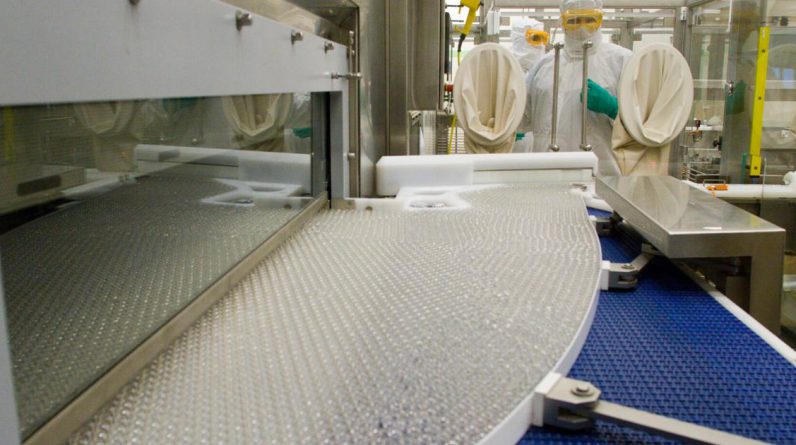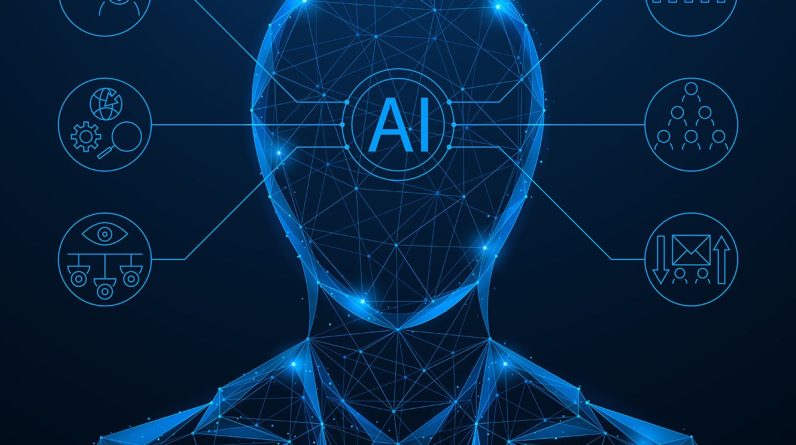
Don Bolton is up against some headwinds when it comes to spreading the word about what he thinks artificial intelligence can do for manufacturers.
He used to be a design and process engineer, serving companies like General Motors, Chrysler, Kuka and Comau. He sees the reports, like one released in December by MarketsandMarkets that predicts the value of Automotive AI will grow from around $2.2 billion today to $7 billion by 2027. But Bolton left automotive-fueled Michigan about four years ago to move to Pennsylvania and become a business adviser for Mantec — a not-for-profit industrial resource center serving nine counties including Lancaster.
“When I took this job, I had an extremely high expectation because of the work I’d done back in Michigan. But it’s not the same here,” he says. “People see the price tag and they’re like, ‘Maybe I can’t justify that.’ ”
Bolton created what he considers a handy return-on-investment tool to make his case. It’s only going so far. He’s helped some clients throughout Mantec’s coverage area install AI offerings. But he’s hoping to do a lot more.
“Pennsylvania — especially this area — is slightly behind implementation of automation, AI, industry 4.0 in general,” he says.
READ: Full coverage of Progress 2024 [roundup]
Nationally and internationally, implementation is coming fast and furious. In January, Forbes magazine ran a piece by Dr. Ayesha Khanna, CEO of Singapore-based AI consulting firm Addo, titled “How AI is reshaping five manufacturing industries.”
She picked automotive, electronics, aerospace and defense, food and beverage, and pharmaceuticals. Describing the latter, Khanna notes that Pfizer used IBM’s supercomputing and AI to design the COVID-19 drug Paxlovid in four months — 80% to 90% faster than a typical timeline.
Such acceleration has the potential to greatly impact places that then make or package drugs, including GSK’s Marietta campus, which serves as the drugmaker’s primary packaging site for vaccines in the U.S. market. Early last year, GSK (which until 2022 was called GlaxoSmithKline) did some hiring with the intent of adding 65 employees to the 300 already working in Marietta.
“Data and technology, including AI, are redefining the way we work and helping us get ahead of disease, better and faster than ever before,” a company spokesperson said in an emailed statement. “In particular at Marietta, we’ve been focused on implementing automation and digitization across our systems to expedite and enhance our work flow.”
READ: AI a growing tool for those interested in buying, selling, investing in real estate
Especially for tech novices, it can be hard to picture exactly what that might look like. It’s a little easier — though perhaps not a lot — if you look at www.gsk.ai. That website highlights GSK efforts likely to touch — to varying degrees — the drug maker’s more than 90,000 employees in 92 countries.
Central to what’s going on are something called large language models or systems that can process and learn from vast amounts of data, according to a December blog post on GSK’s AI site. Those systems can now be integrated with what are referred to as “agents” or autonomous software tools “capable of determining how to perform a particular task, and setting out a plan to accomplish this,” per the blog.
“Agents have a long history in AI, but their use has so far been limited due to the difficulty of task planning when applied for more complex functions,” the post adds. “LLMs can act as the ‘brains’ for an agent allowing it to create a strategy for a task, determine how to execute the task, evaluate the results and update the plan.”
The blog goes on to say that the intent is not to replace the work of staff but to assist them.
“The expert user remains critical in providing feedback and guiding the plan of the agent, as well as reviewing and modifying the results of each step,” it says.

Practical applications
Precision Cobotics is an example of a Lancaster County company that is immersed in the AI world. That integration company matches robot arms (which it obtains from places like Denmark) and combines them with AI offerings in order to serve a specific function.
YouTube clips offer a glimpse at their work, including one filmed at Automate 2023, a national automation trade show. There, Precision Cobotics was part of a demonstration done without any hard automation dependent on things like precisely-lined grids.
Imagine a carton of cereal boxes, says Precision Cobotics President John Bridgen. If those are neatly packed in rows, an old-school robot can handle moving each one without issue, he says.
Now imagine, instead, that those cereal boxes are scattered about in piles.
“The AI is the part that tells the robot, ‘Hey, this is laying at a 46-degree angle, go pick it up,” he says.
AI’s ability to switch between various scenarios translates to a major floor space savings for manufacturers, Bridgen says.
Bolton says another practical AI application is focused on predictive maintenance. AI is able to predict when machines will go down so that manufacturers can deal with them at a time that’s not in the middle of a shift and doesn’t lead to wasted material.
“It’s like with any new technology, there’s always the push back and there’s always the, ‘Oh, well it’s just not viable for me,’ ” Bolton says. “Unfortunately, when it comes to manufacturing, thinking that anything new that’s coming out is not viable or relative to you is a hindrance.”
READ: Lancaster Tech Law founder discusses benefits and risks of artificial intelligence
Sparking some interest is one reason Bolton agreed to write an article about AI for a recent issue of Thriving, the Lancaster Chamber’s magazine.
“I just think the more awareness we can bring, the better off everybody is,” he says.
He’s speaking practically and philosophically.
“I share an odd vision for the future where humans work three days a week and the other two days are spent on community activity,” Bolton says.
They’d still be paid for a full week in this vision.
“If we can get it to where AI and robotics are doing a lot of the manual and mundane jobs, I would like to see society move toward that,” he says. “Obviously, that’s far off in thinking, but we could get there.”



Success! An email has been sent to with a link to confirm list signup.
Error! There was an error processing your request.








